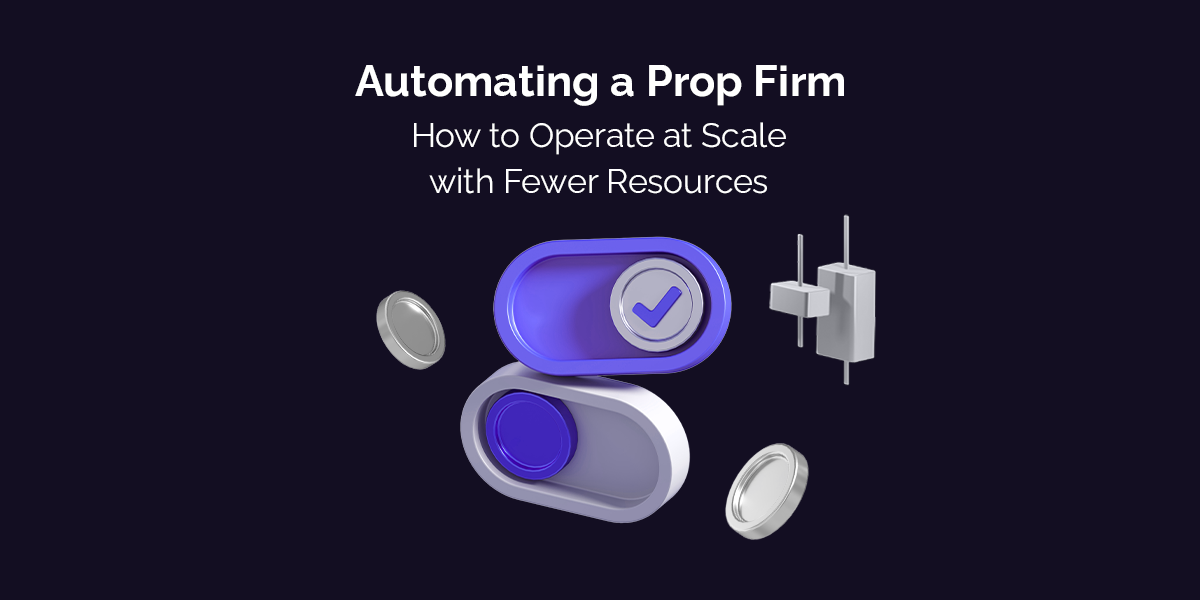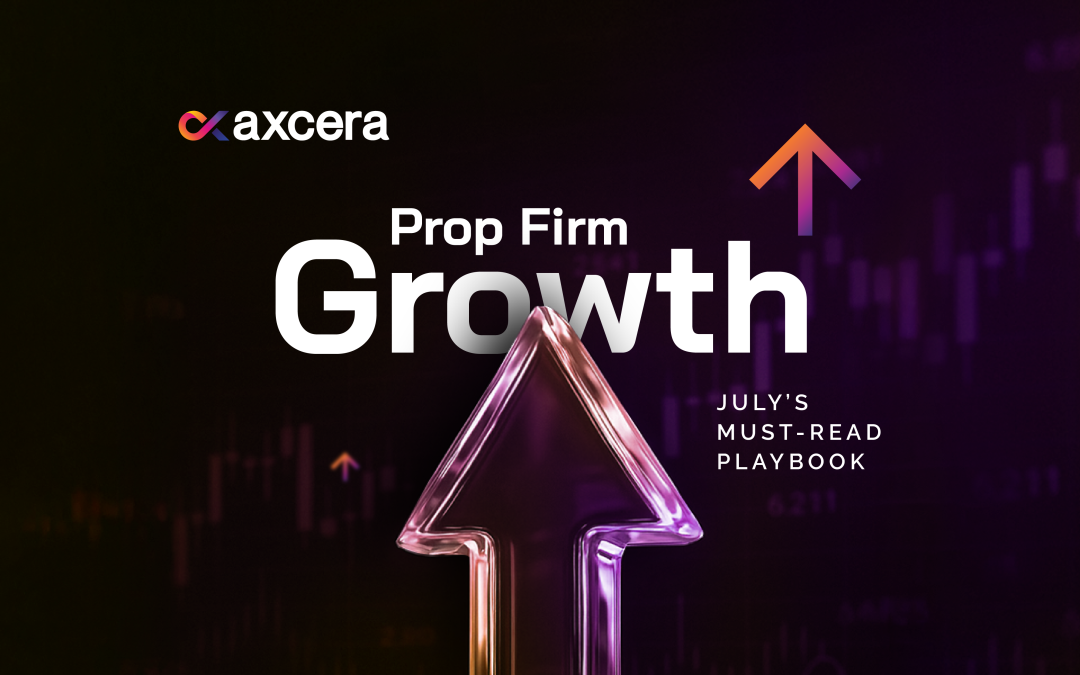The Case for Automation in Prop Trading
Proprietary trading firms face intense competition and rapid growth opportunities. To scale effectively without proportional increases in headcount or costs, firms are turning to automated prop trading solutions and specialized software. Automation can handle repetitive tasks and complex workflows more reliably than manual processes. For example, integrating trading platforms with a prop firm’s back-end systems can shorten the workflow, making it easier to manage traders, track their progress, and automate key processes. By reducing human intervention in day-to-day operations, a prop firm can operate at a high volume with fewer resources while minimizing errors.
Key Areas to Automate
Modern prop trading firm automation tools cover nearly every aspect of a prop firm’s operations:
- Trader Onboarding and KYC: Automated client onboarding systems swiftly verify identities and documentation, ensuring compliance without manual paperwork.
- Challenge and Evaluation Management: Evaluation management software coordinates multi-step trading challenges, automatically moving traders through evaluation phases when objectives are met. Some platforms even allow configurable automatic or manual phase progression for advancing traders. This reduces bottlenecks in evaluating traders at scale.
- Account Management and CRM: A dedicated prop firm CRM centralizes trader data, account status, and communications. It can automatically update traders on their challenge progress, issue rule violation alerts, and handle funding or payout requests seamlessly.
- Risk Monitoring: Automated risk management tools enforce rules like daily loss limits or leverage caps in real time. They trigger alerts or cut off trading when thresholds are breached, protecting the firm without requiring constant manual oversight.
- Payments and Payouts: Integrated payment gateways and payout automation ensure that fees, deposits, and profit withdrawals are processed quickly and accurately. This not only saves staff time but also improves the trader’s experience.
By automating these core areas, prop firms free their teams from micromanaging routine tasks and instead focus on strategic growth and customer service.
Scaling Up with Fewer Resources
The primary benefit of automation is scalability. A well-implemented prop trading platform and CRM system allow a firm to handle a large number of traders and high transaction volumes without a linear increase in staff. In fact, CRM systems have become indispensable tools for prop trading firms, offering features that enhance client relationships, improve operational efficiency, and drive business growth. All of these improvements ultimately translate into a better experience for traders. When a firm’s dashboard provides real-time performance tracking and analytics, one manager can oversee many traders with minimal effort. For instance, a modern platform might offer a unified dashboard and performance analytics designed to improve trader engagement while helping the firm focus on growth and scalability.
Automation also reduces operational overhead. Giving prop firms a full suite of tools, from automation to interactive dashboards, is about enhancing the trader experience while reducing operational overhead. In practice, this means fewer manual workflows (like sending out emails or updating spreadsheets) and more standardized, efficient processes. A lean team equipped with the right software can manage onboarding, monitor hundreds of active accounts, and execute support tasks far more efficiently than a large team using legacy methods.
Choosing the Right Technology Partner
To successfully automate, prop firms must choose their technology wisely. There are white-label platforms that offer automated prop trading solutions out-of-the-box, including integrated evaluation management, CRM, and trading terminals. These can help new firms launch quickly and start scaling from day one. However, firms should ensure the platform is flexible and reliable. Key considerations include:
- Integration: The software should integrate with popular trading platforms (e.g. MetaTrader, cTrader, Match-Trader, NinjaTrader, Tradovate, ATAS etc.) and any other tools the firm uses.
- Customization: As the firm grows, the ability to customize challenge parameters, dashboards, and user experience is important. This ensures automation aligns with the firm’s unique business model.
- Support and Updates: A strong technology partner will provide ongoing consulting, support and regular updates, so the automation keeps pace with industry changes and regulatory requirements.
In summary, automating a prop firm is about working smarter, not harder. With the right tools in place, even a small team can manage a large, global trader base efficiently. Embracing automation lets you scale operations, maintain high service quality, and allocate your human talent to high-impact areas like strategy, Marketing and customer relationships.
Ready to see automation in action? Contact Axcera to book a demo and learn how our white-label prop trading software can help your firm operate at scale with minimal overhead.









